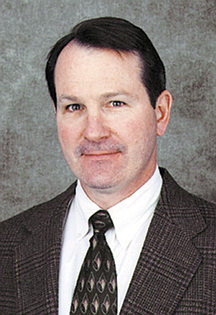Recognizing physicians who are doing community service locally or outside the state or nation
 Physicians for Peace, the international non-profit organization founded by Charles E. Horton, Sr., MD, was officially incorporated in 1989. Dedicated to delivering medical training and support to local healthcare teams across the developing world, Physicians for Peace has operated in more than 60 countries over the past 26 years, striving to achieve its vision of “a world where no one struggles with illness, disability or death due to the lack of quality local healthcare.”
Physicians for Peace, the international non-profit organization founded by Charles E. Horton, Sr., MD, was officially incorporated in 1989. Dedicated to delivering medical training and support to local healthcare teams across the developing world, Physicians for Peace has operated in more than 60 countries over the past 26 years, striving to achieve its vision of “a world where no one struggles with illness, disability or death due to the lack of quality local healthcare.”
Dr. Charles Horton, Jr., a pediatric urologist at Children’s Hospital of the King’s Daughters, was involved with Physicians for Peace even before its official incorporation. In fact, his first mission trip was in 1988, when as a junior resident at Harvard, he accompanied his father and a team of health care professionals to Jordan to perform a wide variety of reconstructive surgeries. Remembering that early trip and the many that followed it, Dr. Horton says, “It’s interesting, because some of the work that my father was best known for overlaps with what I do now as a pediatric urologist – reconstructive surgeries for boys with congenital defects: hypospadias, among others. My father pioneered some of those techniques, and we did a lot of those surgeries together, in several countries. We were in Egypt quite a few times, and in Israel, China and Honduras.”
Dr. Horton recalls the last time he performed surgery with his father. “It was also the last time he ever scrubbed on a case,” he says. “It was in 2000, in the Dominican Republic, in a little town called Moca, 145 kilometers north of Santo Domingo. Our patient was a boy of about 12 who had had multiple attempted repairs, all of which had failed. We were able to successfully perform a salvage hypospadias repair for that young man.”
For the past decade, the Dominican Republic has remained the focus and the destination of Dr. Horton’s mission trips, and he has come to work very closely with the medical professionals in that country. His next mission is scheduled for the fall of 2016. “I take one other pediatric urologist and two other surgeons, as well as an anesthesiologist, a nurse anesthetist, one or two nurses and often a medical student,” Dr. Horton says. The team will stay for a week to 10 days, focusing not just on performing surgeries, but also on training health care providers in the Dominican Republic.
“The need is so great,” Dr. Horton explains, “and there is a great deal of pathology in the country that has been ignored, or improperly dealt with, largely because so many have not had the opportunity to be properly educated and trained.”
Today, Dr. Horton says, there are only four pediatric urologists in all of the Dominican Republic. It’s estimated that one pediatric urologist is needed for every 700,000 in population. The Dominican Republic has a population of 10.8 million people, so they are grossly understaffed.” So much so, in fact, that Dr. Horton and some of his colleagues are in the process of setting up a fellowship in the Dominican Republic. Beginning in 2016, and for the next two consecutive years, they will train one physician each year in reconstructive surgery and pediatric urology. They have identified the initial candidate, who will come to Virginia for part of the fellowship period to train with both pediatric urologists and adult reconstructive urologists.
It’s all part of the philosophy of Physicians for Peace: teach one, heal many. In other words, Dr. Horton says, “We have to teach them how to do what we do, independently of us. So basically, we’re trying to put ourselves out of business down there eventually.” <

